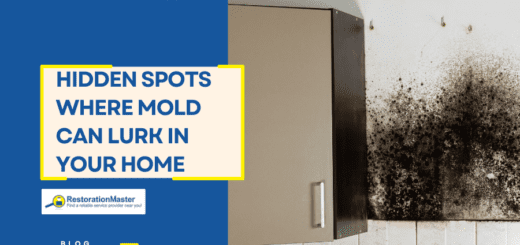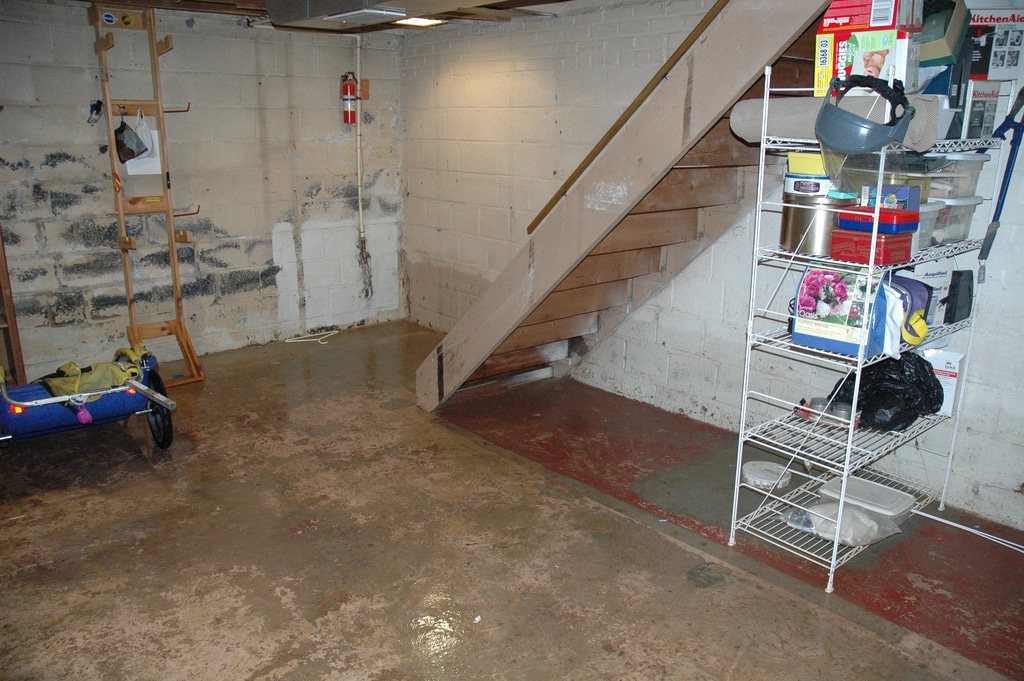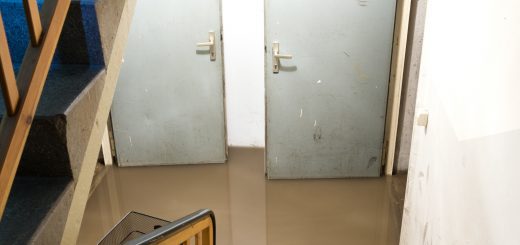Water Leaking from a Fish Tank Filter | Where to Look
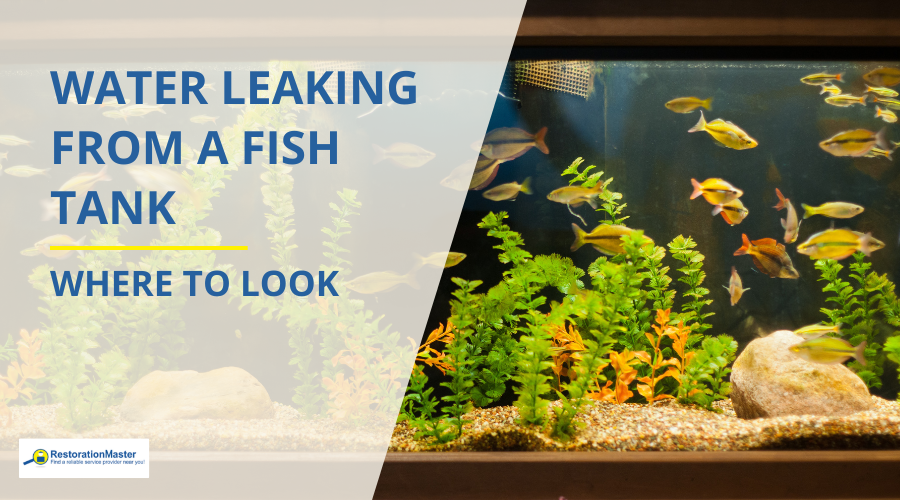
Many households have beautiful large fish tanks on display to show off their collections of different types of fish. Whether you’ve had the fish tank for only a short amount of time or many years, it is important to know that fish tank leaks can happen at any time and what to do in those situations. Leaks from large fish tanks can leave devastating water damage to your property as well as possibly hurt your fish. It is important to educate yourself on how and why leaks happen and what to do if you get a leak in your fish tank.
Water Damage from Fish Tanks
Although fish tanks add beauty and tranquility to a space, they can also become a source of significant water damage if not properly maintained. Water damage from fish tanks can be caused by a slow leak, an accidental overflow, or a sudden tank break. The large amounts of water can quickly cause damage to floors, walls, and nearby furniture. Over time, small leaks can seep into flooring materials, leading to mold growth, warpingWarping is the bending, twisting, or distortion of materials... More, and structural damage.
Saltwater tanks present unique risks as salt can corrode surfaces and cause further damage. To prevent water damage, it is essential to routinely inspect the tank, stand, and the surrounding areas for any signs of water.
Why is Water Leaking from My Filter?
There are various reasons why your filter may leak and cause water to come out of your fish tank. Here are a few:
- There is dirt or grime or even dings in your O-rings that go around the fish tank, or the fish tank groove where the O-ring sits is dirty and the O-ring does not sit well on it which may cause leaks.
- Your O-ring may have tears or has cracked. If this is the case, it should be replaced.
- The groove between the tank and where the O-ring sits may not have enough lubrication. Make sure to use a non-petroleum lubrication so it seals properly and keeps the water in the tank.
Why is My Fish Tank Leaking Water?
When you notice that your fish tank is leaking water, it is important to determine if it is the fish tank itself that is leaking or the equipment within it. Here are some questions to ask yourself:
- Is there a power filter? If yes, then check if the inlet and outlet pipes are where they should be.
- Have you recently taken out the filter? If so, check if you closed it and if the locking clips closed properly. If the leak is due to the filter, this is your solutionA solution is a homogeneous mixture of two or more substance... More for the leak.
How Do I Stop My Fish Tank Filter from Leaking?
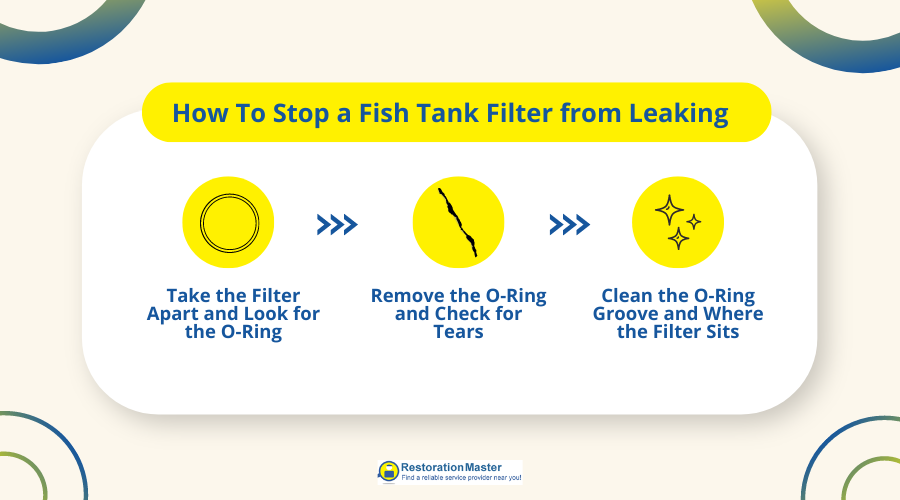
If you find that your fish tank filter is leaking, here are the steps you should take to remediate the situation:
- Take the filter apart and look for the O-ring that should be around the lip.
- Remove the O-ring and check for tears.
- If you do not find any tears, make sure to clean it well and check the O-Ring groove that it nests in for any dust particles or dings. Also, check the groove on the lid of the tank and the main container where the filter sits. Make sure to clean both.
How Do I Know if My Fish Tank Filter is Broken?
Experiencing your fish tank filter breaking can be stressful for the owner. Not only can it cause a huge difference in the quality of water for the fish, but it can also cause devastating water damage if large amounts of water leak below your fish tank.
Here are some signs that your fish tank filter is broken.
1. Leaking Water:
A clear sign that your fish tank filter is broken is leaking water. This usually means that the seal around the filter is cracked and must be replaced.
2. Missing Water:
If there is missing water in your fish tank but there is no actual water leaking out of it, that means that the water is evaporating. This happens when the filter system makes the water too turbulent, and the water evaporates quickly. This can be very dangerous as the minerals in the water do not evaporate and instead become concentrated. The best way to avoid this is to install a full cover on your aquarium.
3. Filter Placed Too High:
If you place your filter too high, you may have to deal with leaking water. Always make sure that your filter is below the lip of the tank so that if the water gets bubbly, it does not spill on the floor. Also, make sure to raise the filter spongeA sponge is a porous material used to absorb liquids or clea... More a little bit out, that will stop any spilling of water.
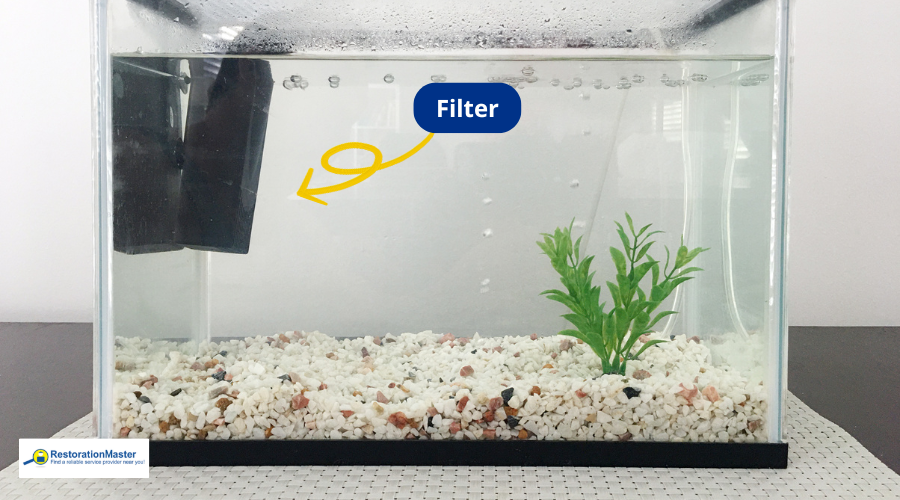
4. Dirty or Clogged Filter:
If your filter is dirty, you may experience spillage of water. Make sure to take out the filter cartridge, wash it, and remove any debris so that water can flow freely through the spongeA sponge is a porous material used to absorb liquids or clea... More.
You should always check if the outflow of the filter is plugged as this will cause spillage of water.
How Often Do Aquariums Leak?
According to many studies, aquarium leaks are common. A study from the American Program Bureau found that about 25% of over 3,200 tanks leak as a result of wear and tear or improper setup. For most fish tank owners, it is normal for leaks to happen in the beginning, however with time they get better about being aware of different issues that may cause leaks and how to fix them, so it happens less often.
If properly maintained, leaks from fish tanks are rare. Regular inspections and prompt repairs are essential for preventing damage.
How Long Do Aquariums Last?
Glass fish tanks should last between 15-20 years if they are made from quality materials. However, it is important to mention that they must be properly maintained and made of high-end glass to expect them to last for more than 25 years.
Water Damage Restoration

Addressing water damage promptly is crucial to minimize the long-term effects on your home or business. Whether the source of water damage is a fish tank leak, plumbing failure, or natural disaster, professional water damage restorationWater damage restoration is the professional process of clea... More services can help you restore your property to its pre-damage condition. Call a water damage restoration professional for help. They will arrive right after your call and begin the water damage restorationWater damage restoration is the professional process of clea... More process. Water causes damage quickly, the professionals










